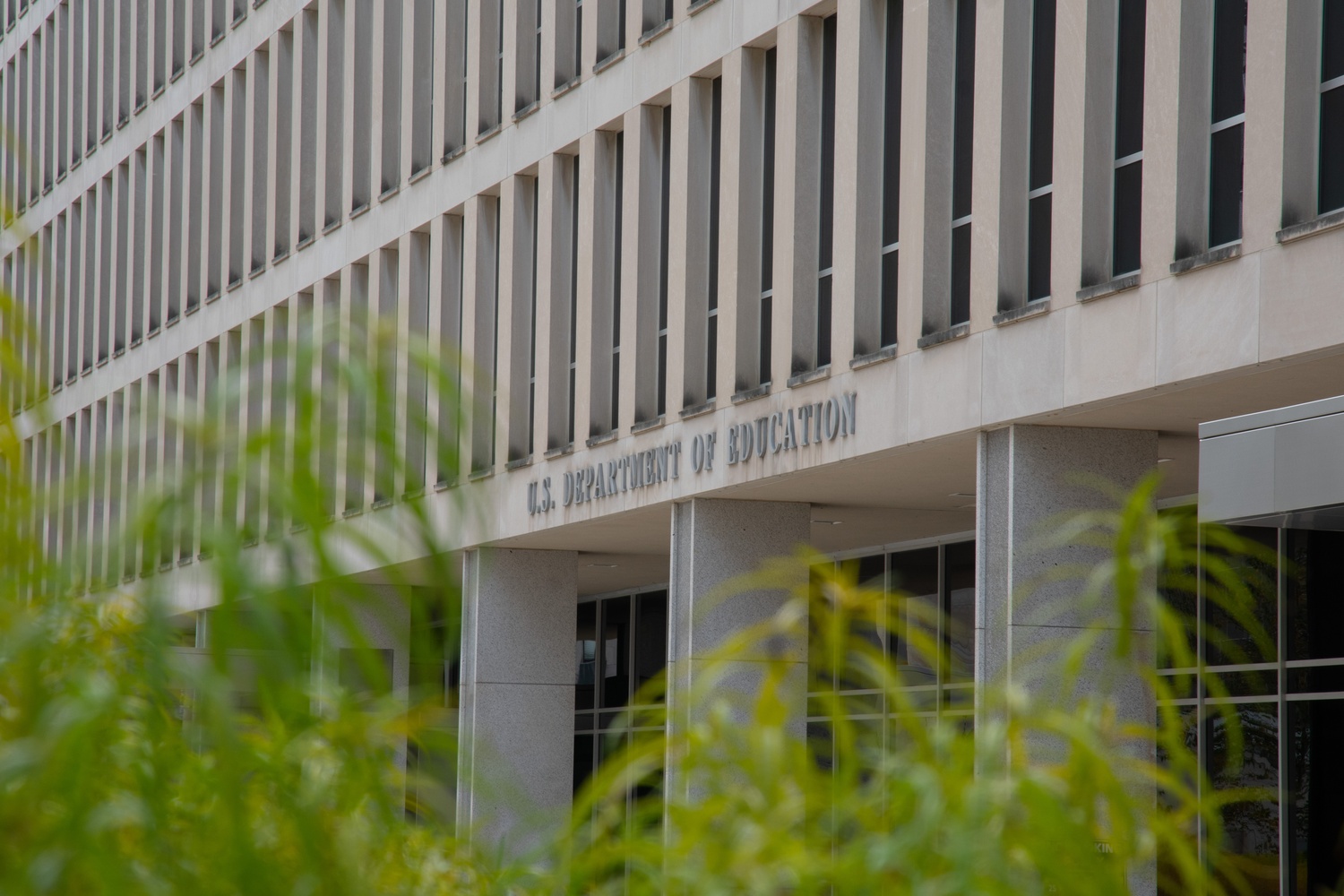
News
Summers Will Not Finish Semester of Teaching as Harvard Investigates Epstein Ties

News
Harvard College Students Report Favoring Divestment from Israel in HUA Survey

News
‘He Should Resign’: Harvard Undergrads Take Hard Line Against Summers Over Epstein Scandal

News
Harvard To Launch New Investigation Into Epstein’s Ties to Summers, Other University Affiliates

News
Harvard Students To Vote on Divestment From Israel in Inaugural HUA Election Survey
Trump Expands Race Data Disclosure Requirements, Putting Harvard Admissions Under Scrutiny Again

Harvard and all other American universities will now be required to submit data proving that they do not consider race in admissions, following a Thursday memorandum from President Donald Trump.
The order — which came after the White House struck deals requiring two universities to disclose admitted students’ race, test scores, and grades in exchange for the restoration of federal funding — addresses longstanding suspicions on the right that schools are circumventing a Supreme Court ruling that limited the consideration of race in admissions.
In 2023, the Supreme Court struck down Harvard’s use of affirmative action in its undergraduate admissions policies, banning affirmative action in higher education nationwide. Colleges are still allowed to consider how an applicant’s race shaped their life experiences.
The Trump administration has interpreted the ruling in the case, Students for Fair Admissions v. Harvard, as a sweeping prohibition on the consideration of race in college programs. Both the Education Department and the Justice Department have issued letters asserting that diversity and inclusion programs, “cultural competence” hiring requirements, and efforts to recruit minority students or job candidates are illegal.
In the Thursday memo, Trump said universities’ use of “diversity statements” and “overt and hidden racial proxies” indicated that race may still be considered in admissions.
The order directs Education Secretary Linda McMahon to “revamp” and “overhaul” the Integrated Postsecondary Education Data System, which collects and exhibits statistics about universities nationwide.
It also asks the Department of Education to “expand the scope of required reporting to provide adequate transparency into admissions, as determined by the Secretary of Education, consistent with applicable law” for the 2025-26 academic year.
The memo does not explicitly ask for race data, but the administration has touted it as a way to combat what it sees as illicit affirmative action. McMahon immediately directed the National Center for Education Statistics, which oversees IPEDS, to collect additional admissions data that will “ensure race-based preferences are not used in university admissions processes.”
Schools will now be required to report students’ grade point averages, standardized test scores, first-generation status, and other characteristics disaggregated by race and sex. It is unclear what changes will satisfy the Trump administration of compliance — but federal officials may well become suspicious if elite schools do not reduce admissions of Black and Latino students.

Harvard has spent the past two years in a double bind, fearing public backlash and possible litigation if its demographics show little change in response to the SFFA decision, but also if it sees a dramatic drop in enrollment of underrepresented minority students.
Despite the 2023 decision, the race breakdown of Harvard College’s admitted students stayed relatively stagnant in 2024 — though inconsistencies in the school’s calculations leave some uncertainty. Among American undergraduates who reported their race, Asian students made up 37 percent of the class — the same as the previous year. Black enrollment dropped from 18 percent to 14 percent, while Latino or Hispanic students made up 16 percent of the class — up from 14 percent the previous year.
In October 2024, the College announced it would no longer release admissions data in May when applicants received their decisions. Instead, the admissions office now shares the profile of the incoming freshman in the fall, when the College is required to report the statistics to the Department of Education. According to the admissions office, the change was made to comply with the Supreme Court’s 2023 decision.
Harvard Law School saw steep drops in both overall minority enrollment and enrollment of Black and Hispanic students in its first J.D. class admitted after the ruling. Both white and Asian enrollment jumped substantially.
Under McMahon’s directive, Harvard College will now be required to report statistics about both its applicant pool and admitted classes. McMahon also wrote that “specific graduate and professional programs” will be subject to the policy change but did not specify which ones may be considered.
Harvard does not publicly release the details of its applicant pool, making it difficult to discern whether — and how – Harvard considers race in admissions in practice. Trump’s new order touts itself as a way to shed light on a black box, directing McMahon to make the new IPEDS data “easily accessible and intelligibly presented for parents and students.” But it may still leave admissions offices’ internal procedures opaque.
Harvard is currently in talks to settle with the federal government over a range of Trump administration grievances, including accusations the school failed to fight antisemitism and practiced racial discrimination through its diversity, equity, and inclusion offices.
The fight over admissions has figured prominently in the feud — featuring in letters yanking Harvard’s federal funding and a Justice Department investigation.
The Trump administration has already settled with two other Ivy League universities over similar complaints. In the settlements, Brown University and Columbia University became the first two schools to agree to disclose admissions and race data that is additional to the data the federal government already collects.
By broadening the disclosure requirement to all U.S. universities, the new policy makes it all but certain that Harvard’s admissions data will be scrutinized, too — and removes a possible concession from the University’s ongoing negotiations.
–Staff writer Abigail S. Gerstein can be reached at abigail.gerstein@thecrimson.com. Follow her on X @abbysgerstein.
Want to keep up with breaking news? Subscribe to our email newsletter.
